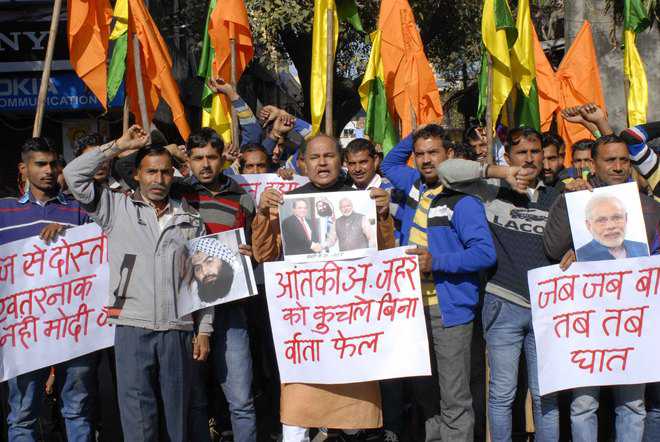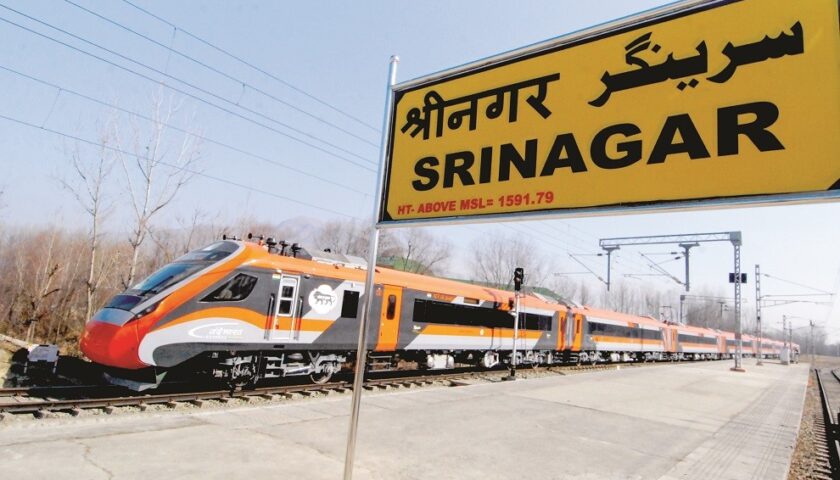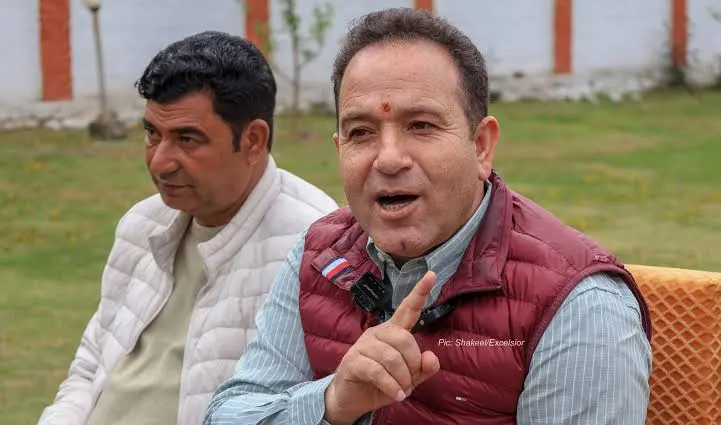IT was coming. The moment Prime Minister Narendra Modi landed in Lahore, Pakistan, a unique visit of its kind, there had been apprehensions that there might be a spectacular attack on the Indian soil which may attempt to kill the prospects of future meetings and talks between the two countries.
 The attack on the Pathankot Indian Air Force base on Saturday fitted into that line of anxieties that govern the relationship between Delhi and Islamabad. Terrorists have started their work post Christmas Modi visit to Pakistan. This is a bad sign for Kashmir, where the people desperately want to escape the harshness of violence and see a life of peace on their land. Anything derailing the surprise and goodwill visits by the apprehension of the real-time terror attacks would be a death knell to their hopes. If the talks fail this time, there would not be a third visit to Lahore by any Indian Prime Minister.
The attack on the Pathankot Indian Air Force base on Saturday fitted into that line of anxieties that govern the relationship between Delhi and Islamabad. Terrorists have started their work post Christmas Modi visit to Pakistan. This is a bad sign for Kashmir, where the people desperately want to escape the harshness of violence and see a life of peace on their land. Anything derailing the surprise and goodwill visits by the apprehension of the real-time terror attacks would be a death knell to their hopes. If the talks fail this time, there would not be a third visit to Lahore by any Indian Prime Minister.
It’s immaterial whether the attack was planned before or after Modi’s visit to Pakistan, the terrorists have made a striking point that they were all out to tell all the peaceniks that their agenda would remain unchanged. The birthday diplomacy or the desire to improve the India-Pakistan ties was unacceptable to them.
The target and the objective of the terrorists this time underlined the audacity of the attackers and the potential aim of torpedoing the Indo-Pak talks.
Compared to today’s attack, the terrorists’ assaults on the Dinanagar police station and a BSF convoy in Udhampur were milder versions.
The last time terrorists had attempted an attack was the Awantipore air base in south Kashmir. That time the terrorists could not penetrate into the airbase as they were neutralised outside it. There was another attempt at the Srinagar airport in January 2002. Security forces foiled that, too.
Terrorists’ choice to attack the Air Force base in Pathankot was to send a message that they were capable of striking anywhere anytime and were not deterred by the fact that in the recent terror attacks, their colleagues were captured alive.
Naved was captured alive after Udhampur attack in Jammu and Kashmir on August 5 last year. It was his revelations that led to the elimination of Abu Qasim. It also helped the security forces to cause a major dent to the Lashkar-e-Toiba in Kashmir.
An attack on a police station or a convoy doesn’t cause as much alarm and concern as it does with the terror attack on an Air Force base where fighter aircraft are parked. This can raise an international concern and also raise questions about the national security. It’s a potential trigger for the groups within India to ask for cancellation of proposed talks with Pakistan. Secondly, the greater danger is that it also serves the purpose of the anti-dialogue militants and their patrons in Kashmir and Pakistan.
The method of the attack in Pathankot bears close similarities to the attacks on the airbases of Pakistan where terrorists inflicted heavy loss to human lives and material. Today, Pathankot might have escaped with minor losses as compared to the terrorism-hit air force bases in Pakistan, but the fact is that more such attacks cannot be ruled out. It also establishes the fact that this group of attackers was inspired, motivated and trained by the same set of terrorist trainers who want to cause instability. The only difference in the Pathankot attack case is that the non-state actors — whether Jaish-e-Mohammad or any other terror group — were having the blessings of the state actors. The intentions of the Pakistan army and ISI have been suspected by Washington DC for despite getting the American aid Pakistan has not acted against terrorists in the manner it should have. There is no clear line defining the non-state and the state actors in Pakistan. These state actors had raised Taliban that destroyed Afghanistan and the militant outfits that destroyed the social, political and economic order in Jammu and Kashmir.
Two things are clear: One, non-state actors having the patronage of some anti-dialogue state actors in Pakistan are active. Secondly, the terror attack in any part of the country would have serious psychological consequences in Kashmir where the mainstream and separatists alike are working in an apparent unison to further stir the cauldron of uncertainty for their respective agendas.
With this kind of unsettling scenario, the attack is a very bad omen for the India-Pakistan talks as also for the internal situation in the Valley.
Bad omen for Kashmir : Arun Joshi




